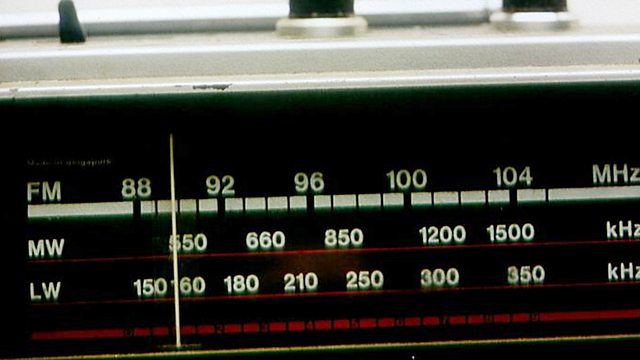
The Other Side of the Dial
4 Extra Debut. Paul Rowley explores the story of Independent Local Radio, which began with LBC in the fractious days of 1973. From 2013.
Paul Rowley looks back at the first wave of UK commercial radio stations, which began in the autumn of 1973 under legislation introduced by Ted Heath’s Conservative Government.
It signalled the end of the Â鶹ԼÅÄ’s radio monopoly going back more than half a century. But it was a difficult birth. The first three months coincided with war in the Middle East, an international oil crisis, with Britain immersed in industrial strife with the three-day week, petrol rationing and power cuts.
The first station LBC came on air on October 8, followed by Capital Radio eight days later. These days they are among the world’s most successful radio brands. But initially the stations struggled with low audiences, little advertising revenue and widespread criticism of their output. But the performance of the fledgling stations outside London which opened the following year such as Radio Clyde (Glasgow), BRMB (Birmingham) and Piccadilly Radio (Manchester) ensured that the project was seen as a success.
Although Harold Wilson’s incoming Labour Government in 1974 was opposed to commercial radio, his administration allowed the first batch of 19 stations to stay on air. It was only in 1980 when Margaret Thatcher was Conservative Prime Minister that the expansion resumed.
Many of the presenters became national names, with a mix of informality and polish, but rooted locally. Commercial stations had an advantage over the Â鶹ԼÅÄ by broadcasting on FM when Radio 1 was still on medium wave, most of them becoming market leaders. They also were on air longer, some 24-hours a day.
There are some amusing stories. How Capital’s chairman Richard Attenborough had to offer his paintings to the bank as collateral to keep his station on- air. How Radio Clyde opened with a prayer, and then the mike didn’t work. How Radio City’s most successful presenter was a fictional character. How the first record stuck at Radio Hallam (Sheffield), as did the second. How veteran broadcaster James Whale put a listener on the air out of boredom at Metro Radio (Newcastle) and created a nightly phone-in, pioneering a new format which was copied elsewhere.
Paul Rowley was a Â鶹ԼÅÄ Political Correspondent between 1994 and 2021. He was a student journalist in 1973 when commercial radio began, joining the Southport Visiter (correct spelling with the ‘e’) as a reporter the following year. He broadcast on Radio City (Liverpool) in its first week in October 1974 covering non-league football, joining the station full-time in 1977 as a news reporter at the end of his three-year newspaper apprenticeship.
Contributors include:
Tony Blackburn
Torin Douglas
Jon Snow,
John Whitney
Dave Cash
Jimmy Gordon
Ed Doolan
Roger Day
Gillian Reynolds
James Whale
Austen Mitchell
Mike Read
Andy Wint
Producer/Presenter: Paul Rowley
First broadcast on Â鶹ԼÅÄ Local Radio beginning with Radio Lancashire in 2013, to mark ILR's 40th anniversary.
Last on
Broadcast
- Mon 9 Oct 2023 20:00Â鶹ԼÅÄ Radio 4 Extra
